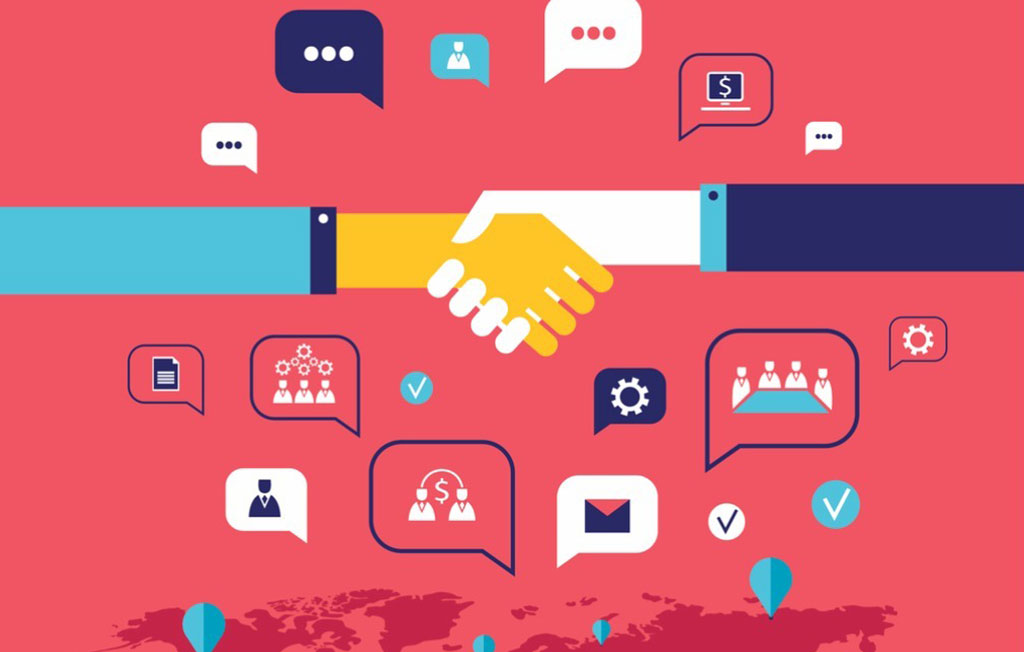
Business Etiquette Tips Every Professional Should Know
Understanding professionalism as it pertains to the workplace can be a new, unfamiliar, and overwhelming subject. Professional etiquette is about presenting yourself with polish and professionalism that demonstrates you can be trusted and taken seriously. Professional etiquette means being comfortable around people and making them comfortable around you.
Business etiquette is important because it creates a professional, mutually respectful atmosphere and improves communication, which helps an office serves as a productive place. People feel better about their jobs when they feel respected, which translates into better customer relationships.
Whether you are starting your first internship or have many years of professional experience under your belt, how you present yourself to others in the workplace matters. Setting a professional tone is crucial to building new relationships and ensuring you have a positive, successful experience in the workplace.
Why is etiquette important? Those people who don’t follow business etiquette frequently make a poor impression severely decreasing their chances for success. The smallest problems can be harmful and damage your career. Therefore, that’s critical that you understand at least the basics of professional and office etiquette. It’s not only the way you behave and speak but also the way you introduce yourself, dress up, follow the policies of the company and even eat. Ready to find out more? Let’s get started.
Communication is Key
Communication is an important part of workplace etiquette. It’s sometimes not what you say, but how you say it counts, so be mindful of how you communicate with your colleagues in meetings and one-on-one conversations. In regards to email/message, be sure your correspondence inside and outside of your workplace is written clearly and free of spelling errors. Remember, an email/message is a permanent record of any conversation, so never put anything you would say to someone’s face in writing.
Understand your Work Environment
The values, policies, and procedures of a workplace can be difficult to discern at first. If you are in a larger organization with a structured human resource division, you may have access to an HR Manager or in-house training to keep you informed of your organization’s expectations. In a smaller workplace setting, some of that knowledge may come from observing others and asking questions of your colleagues when needed. Lastly, observing the atmosphere and actions of others can help you understand what’s appropriate and what’s not, and how to best navigate the workplace while maintaining your professionalism.
As the global market grows, the need to understand multiple international standards of business etiquette is also growing. If you take a job or internship in another country, be to research the proper etiquette, culture and customs for both that country and the organization you plan to work for.
Be Personable Yet Professional
Sharing information about your personal life is your choice, but be cautious when it comes to what you share; some colleagues may be more open than others and might choose to keep their personal life private as well. Similarly, you may want to limit personal calls, emails, and other non-work-related tasks to after-work hours. Within your workspace, it’s okay to add personal touches but remember that your colleagues will see the space and consider it a reflection of your professional self. Lastly, getting to know your colleagues is a good thing but always be respectful of others’ space. If you need to discuss something with them, don’t just walk in; knock or make your presence known, and always offer to schedule a meeting for later in the day if they are busy at the moment.
Avoid Gossip
How you treat people says a lot about you. Don’t make value judgments on people’s importance in the workplace or speak negatively about your co-workers, even if you find yourself frustrated over a certain situation. Be thoughtful about how you interact with your supervisor(s), peers, and subordinates as well.
Show Your Professionalism in the Workplace
Many employees are confused when it comes to workplace ethics. “Can I enter someone’s office if the deal is urgent?” “Can I borrow somebody’s cup if mine has disappeared?” “How should I behave in the team?” First, never barge into someone’s place with little warning. Remember that your boss and colleagues have the door closed for a reason. Always knock before coming in.
Follow Office Rules
Almost every company has its policies. Familiarize with them and follow. It’s going to make you a king of workplace etiquette because workers rarely pay enough attention to those rules.
Send Separate “Thank You” Notes
It’s advisable to follow up a meetup with a small note to express your gratitude or interest. Send those thank-you notes within 24 hours.

To help you define the type of manners or behaviour that are expected in your workplace, consider the following:
- How do you treat clients or customers?
- How do you treat your co-workers and supervisor?
- How do you conduct yourself in your cubicle or office?
- How do you conduct yourself during meetings?
- What kind of email messages do you send?
- Do you follow a dress code?
- How do you conduct yourself in the break room?
- How do you conduct yourself during business-sponsored social events?
- How do you conduct yourself during training events?
- How do you conduct yourself on the telephone?

Improving business etiquette
Improving your business etiquette can have a positive impact on your career. Remember to use common courtesy. Adopt the “you” attitude—consider others’ needs and feelings first. This behaviour leads to good manners and common courtesy, thereby improving your business etiquette.
Examples of courteous behaviour include:
- Using please and thank you as appropriate
- Addressing others using Mr., Mrs., Miss, or Ms. unless otherwise requested
- Speaking clearly and distinctly while using a pleasant tone of voice
- Maintaining eye contact
- Smiling and offering a firm handshake when meeting someone new
Writing thank-you notes and letters of appreciation, congratulation, and condolence as appropriate
Vigilantly observe the corporate culture in which you work, and be aware that change will happen. Your eyes and ears are your best resource in this learning process! Numerous resources exist online on the topic of business etiquette, and there are professional courses you can take to help you learn more.
Finally, remember that a person with bad manners has a small chance of success. Unspoken rules of society matter when it comes to recognition, promotion or business development. Make sure your behaviour and appearance contribute to your status in a very profound way.



